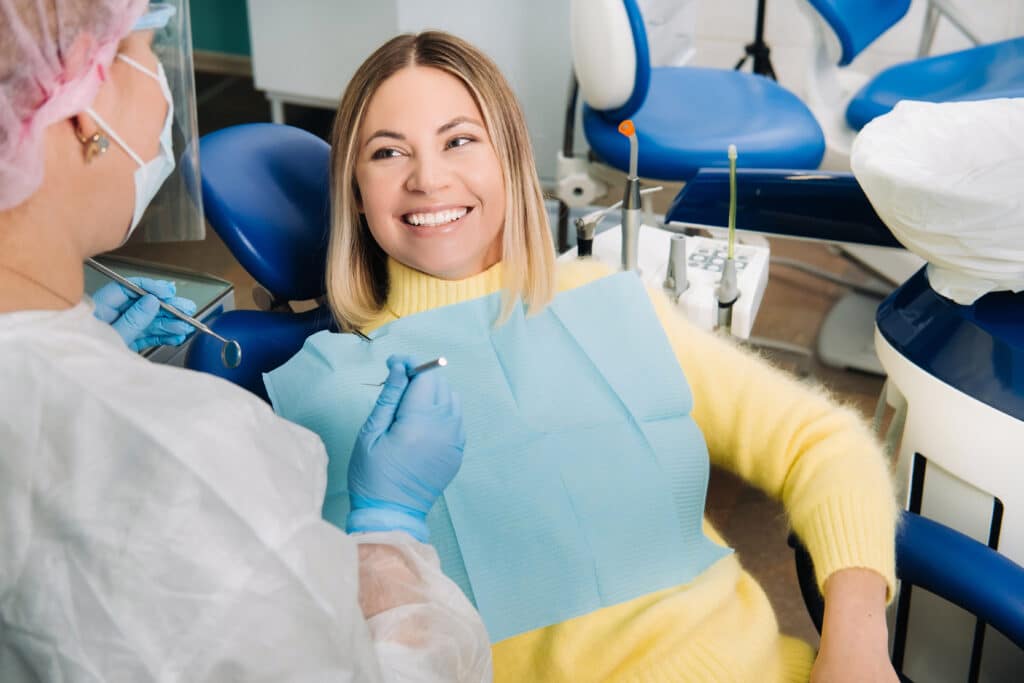Here at Spektor Dental, we believe that preventative dentistry is key to achieving and maintaining a healthy smile.
From cleanings and exams to appliances and restorations, everything here is designed to support a happy, healthy smile.
At Spektor Dental in Bellevue, WA, we provide comprehensive dental care services for the whole family. We offer a wide range of services that focus on sustaining the health and wellness of the smile through preventive procedures and general maintenance; this includes routine cleanings, fluoride treatments, oral cancer screenings, and more! Plus, we offer dental care catered specifically to children with pediatric dentistry.
We are committed to providing each of our patients with the highest quality of care and strive to create a comfortable and relaxed environment. Our friendly and experienced team will work with you to ensure that all of your dental needs are met. Contact us today to schedule an appointment!
Cleanings & Exams
Dental cleanings and examinations are an important part of maintaining good oral health. During a dental cleaning, our team will remove plaque and tartar from your teeth.
- Plaque is a sticky film of bacteria that forms on the teeth in salivary deposits. Over a period of 24 hours, if plaque is not removed with a toothbrush, it can turn into tartar.
- Tartar is a hard deposit of plaque that has built up on your teeth and can lead to decay and gum disease. This accumulation can not be removed with a toothbrush, but our team uses special tools to eliminate these deposits during cleanings.
Our team will also check for signs of gum disease and tooth decay during these appointments. We will perform this examination by visual inspection, as well as using x-rays to check for any problems that cannot be easily spotted; this may include cavities between the teeth, tooth impactions, or tooth infections. If we find anything, we will let you know and make a treatment plan.
It is important to visit our office at least every six months for a cleaning and exam. Plaque and tartar can build up quickly and cause problems if they are not removed.
If you have questions about dental cleanings and exams, please call our office. We are happy to answer any of your questions!


Pediatric Care
Pediatric dental care is a branch of dentistry that focuses on the oral health of children from birth to adolescence. Pediatric dentists are specially trained to provide preventive, diagnostic, and restorative dental care for children at all stages of age and development – from infancy to the late teen years. In addition, pediatric dentists implement child-friendly techniques and practices to ensure that children are comfortable throughout their visits.
The American Academy of Pediatric Dentistry (AAPD) recommends that children have their first dental visit by age one or within six months of getting their first tooth. The purpose of the first visit is to establish a “dental home” for the child and to begin developing a relationship between the child and the dentist.
Pediatric dental care is important because it helps children develop healthy habits that will last a lifetime. It is also important for parents to be involved in their child’s oral health and learn more about steps they can take at home to support exceptional health as their children grow.
Oral Cancer Screenings
At our practice, your oral health is always our top priority. That’s why we recommend that everyone undergoes regular oral cancer screenings as part of their routine dental care visits.
Oral cancer screenings are medical diagnostic procedures that aim to detect signs of oral cancer. There are many different ways to conduct an oral cancer screening, but common methods include visual examinations of the mouth, feeling for lumps or other abnormalities, and, if anything suspicious is found, using a lighted instrument to look inside the mouth and highlight abnormal cell growth. If we find anything unusual, our team will refer you to a specialist as soon as possible for biopsy and treatment.
When caught early, oral cancer is highly treatable and has a high survival rate. However, when left undetected or untreated, oral cancer can quickly spread and become life-threatening.
High-risk groups for developing oral cancer include heavy smokers and drinkers, individuals with a family history of the disease, and those who have previously been diagnosed with oral cancer. If you fall into any of these categories, be sure to let our team know, so we can take extra care during your screening.


Fluoride
Fluoride treatment is a type of dental treatment that helps to protect teeth from cavities. After being applied topically to the teeth, fluoride works by remineralizing the enamel, making the teeth more resistant to acids that lead to tooth decay.
Fluoride treatments can be easily performed in our office and only require a small amount of time to complete. This treatment is often recommended for patients who are at a higher risk for cavities, such as those with weakened enamel or a history of cavities.
Protective Restorations
Protective restorations are thin, plastic coatings that are applied to the teeth to prevent cavities. They work by sealing off the pits and grooves in the teeth, which are especially susceptible to decay. These are applied to the back teeth (molars and premolars).
Protective restorations are especially beneficial for children, who are just learning how to brush properly – and adults, who have deep grooves in their molars and are at greater risk of developing cavities. They can last up to ten years, but will need to be replaced as they become damaged or worn down.
- To apply protective restorations, we will first clean to the dentin and dry the tooth.
- A small amount of material is placed onto the tooth to create a barrier.
- The protective restoration is cured with a light. It will harden in a few minutes and form a strong seal to prevent bacteria from damaging the enamel.


Sports Mouthguards
Sports mouthguards are designed to protect the teeth, gums, and lips from injury during athletic activities. They work by cushioning any direct impact to the mouth and distributing force across the appliance. This helps to prevent teeth from being knocked out and to minimize cuts and bruises to the lips, tongue, and cheeks.
While mouthguards can be purchased from sporting goods stores, appliances designed by our dental team are custom-made to precisely fit the teeth and provide exceptional protection – preventing teeth from shifting or moving following any sports-related trauma.
Our mouthguards are made by taking an impression of the teeth, which is then used to create a model. The mouthguard is then fabricated from a soft, plastic, flexible material that comfortably encases all the teeth.
Wearing a mouthguard is especially important for athletes who participate in contact sports, such as football, boxing, hockey, and lacrosse, because they are at a higher risk for sustaining a dental injury. However, each and every athlete who participates in any type of sport or recreational activity can benefit from wearing a mouthguard.
Nightguards
Nightguards are devices that are worn over the teeth at night. They are designed to protect the smile from damage caused by jaw clenching and teeth grinding. Nightguards can also help to reduce headaches and jaw pain associated with temporomandibular joint disorder (TMD).
While you can easily find and acquire nightguards over the counter, our office creates custom-made appliances from extremely durable materials. These devices are made to last and comfortably fit the teeth – ensuring no gum irritation and absolute comfort while wearing throughout the night.
If you think you may benefit from a nightguard, please give us a call. We would be happy to help you find the best option for protecting your smile!


Sleep Apnea
Sleep apnea is a sleep disorder in which breathing repeatedly stops and starts during the body’s rest period. It can occur multiple times per night and, if left untreated, can lead to serious health problems – such as high blood pressure, heart disease, and stroke.
There are three types of sleep apnea:
- Obstructive sleep apnea (OSA): The most common type of sleep apnea, OSA occurs when the throat muscles and tongue intermittently relax and block the airway during sleep.
- Central sleep apnea (CSA): Less common than OSA, CSA occurs when the brain fails to send proper signals to the muscles that control breathing during the sleep cycle.
- Mixed sleep apnea: As its name suggests, mixed sleep apnea is a combination of both OSA and CSA.
Sleep apnea can affect people of all ages, but it is more common in adults, especially those who are overweight or obese. It is also more common in men than in women.
If you think you might have sleep apnea, there are a few things you can do.
- First, see your doctor for a complete physical exam.
- Your doctor will ask about your medical history and symptoms and may also order a sleep study.
- A sleep study is a test that is done overnight in a sleep lab. It can help diagnose sleep apnea and determine the best treatment for your condition.
There are several treatment options for sleep apnea, and our office offers oral appliances that are proven to treat the symptoms associated with OSA.
- Oral appliances look like mouthguards, and they work by holding your jaw in a certain position to keep your airway open.
If you think you might have sleep apnea, please call our office to schedule an appointment. We will be happy to answer any questions you have and help you get the treatment you need.
Dental Bridges
Dental bridges are a type of dental prosthesis used to replace one or more missing teeth by bridging the gap between two adjacent natural teeth. The most common type of dental bridge is the fixed bridge, which is made up of one or more false teeth (pontics) that are fused between two porcelain crowns. This type of bridge cannot be removed and is cemented into place over the natural teeth on either side of the gap.
Our team works to ensure your bridge blends perfectly with your smile and contributes to a beautiful appearance while also fitting comfortably and restoring oral function. Dental bridges can achieve the following benefits:
- Prevent neighboring teeth from shifting out of place
- Restore chewing & speaking ability
- Improve the appearance of your smile
- Provide support for the lips & cheeks


Dentures
Dentures are a type of dental prosthetic that helps to restore the function and appearance of the smile following tooth loss. They can be used to replace one or multiple missing teeth or to restore a full dental arch along the top or bottom jaw.
- Complete dentures are designed to replace a full arch and are typically made from a polymer, gum-colored base with porcelain teeth lining the appliance. The dentures are secured using either suction or dental-safe adhesive.
- Partials are another type of denture and are used to replace one or more teeth along a dental arch. Like complete dentures, partials are also made from porcelain teeth; however, they feature an acrylic base, and small metal clasps that attach the appliance to the remaining natural teeth for support.
When cared for properly, dentures can last for many years; however, they will eventually need to be replaced as the mouth changes over time. It’s important to visit our office regularly to ensure your dentures are comfortable and performing as expected.
If you have any questions about dentures or would like to schedule an appointment, please call us today.

